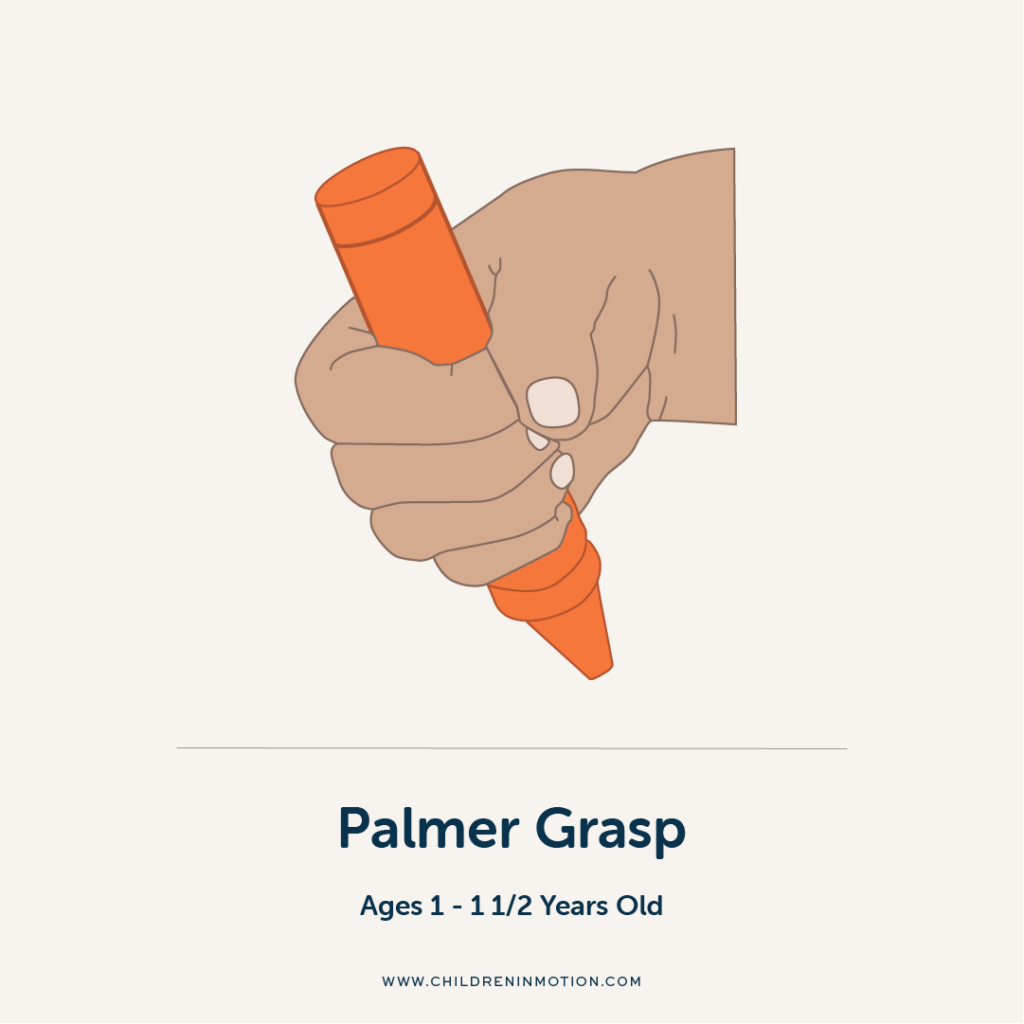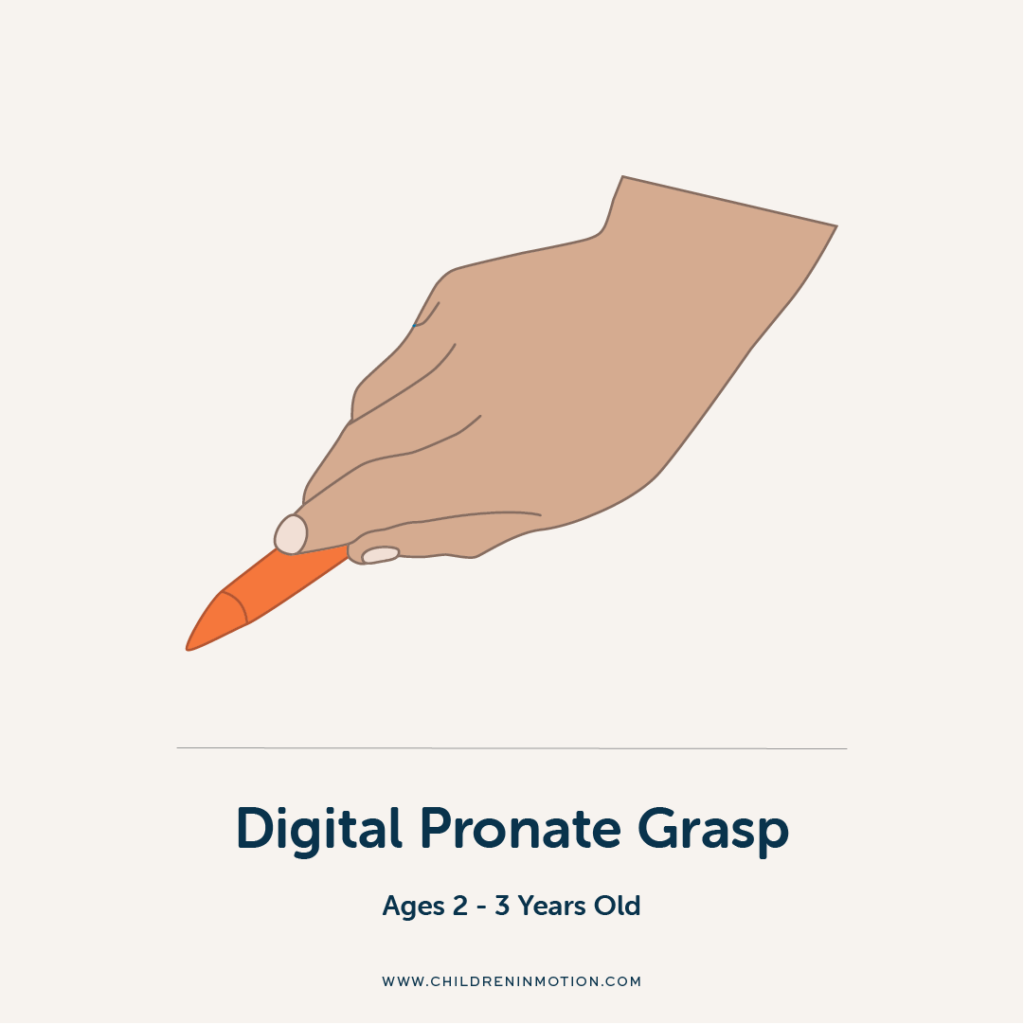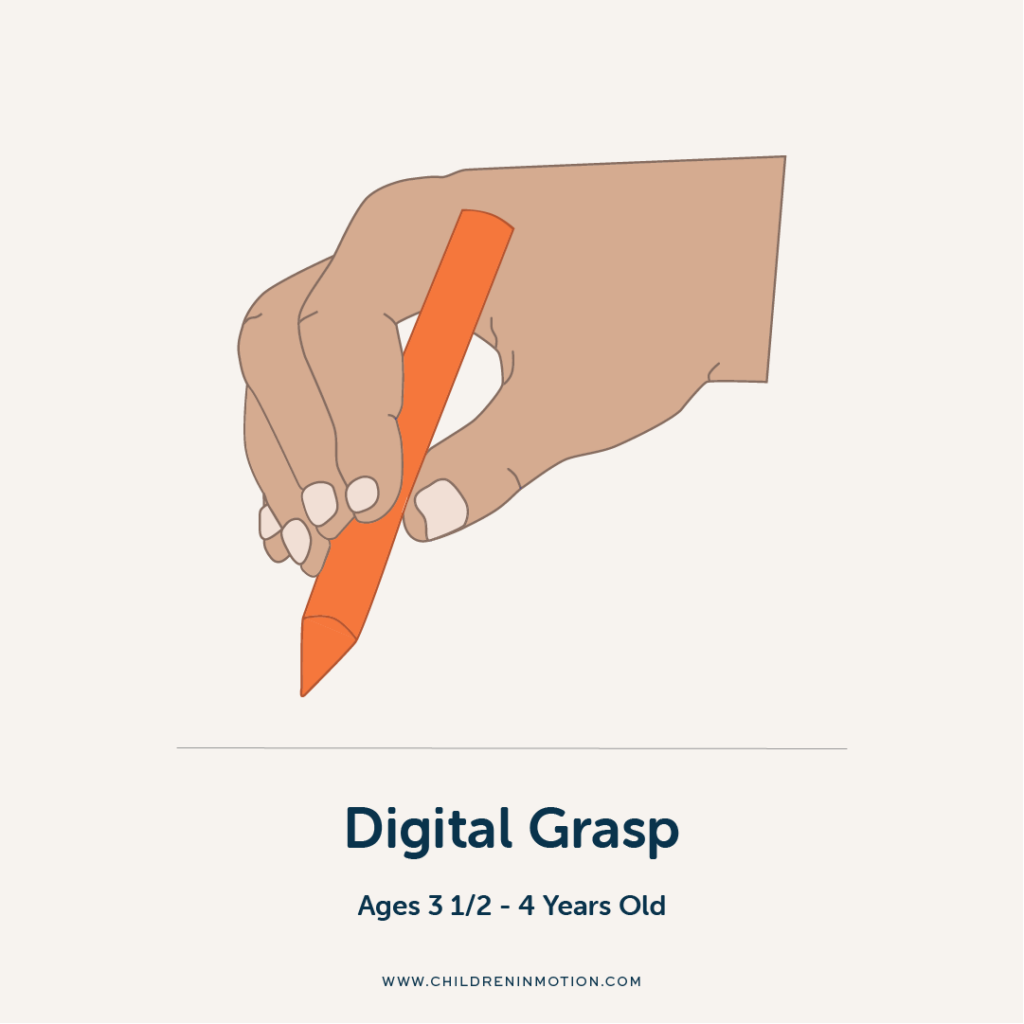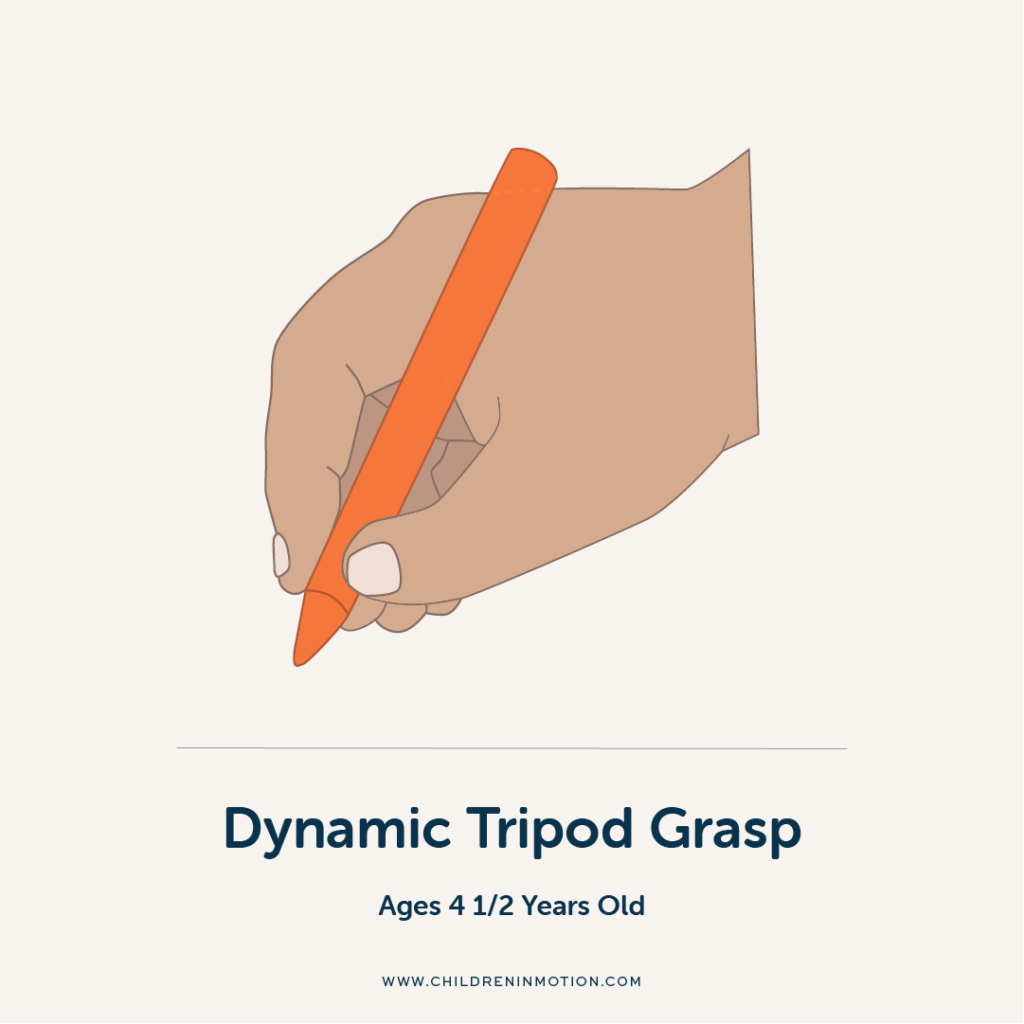Expected Pencil Grasp By Age
Even in our digital age, knowing how to write is an essential life skill. So, when should your child be able to hold a pencil? As with most life skills, it takes time & practice. Here is the expected pencil grasp by age group –

Palmer Grasp – Ages 1 to 1 ½ Years Old
Your child will hold crayons, markers, or brushes with their fist. Usually the wrist is slightly bent forward with the thumb tilted up. To color, paint, etc., your child’s arm will move as one, with the movement coming from the shoulder.

Digital Pronate Grasp – Ages 2 to 3 Years Old
Your child typically holds their pencil with their fingers. Their wrist is straight with the thumb pointed down. Movement now will come from their elbow.

Digital Grasp – Ages 3 ½ to 4 Years Old
Your child should hold their pencil with their thumb and three fingers with their wrist straight. Movement is no longer coming from their elbow, but now coming from their fingers.

Dynamic Tripod Grasp – Age 4 ½
Your child should be able to hold their pencil with their thumb & two fingers, with their wrist slightly bent back. Movement continues to come from their fingers.
Developing these grasps can be challenging if your child hasn’t developed the correct muscles to grip the writing utensil correctly. When we work on handwriting skills, one area of focus is developing the hand & finger muscles through fine motor activities. We love working with play dough – squeezing, pulling, rolling, pinching – all of these movements help strengthen the hand muscles.
Does your child have weak hand & finger muscles?
Download our play dough challenge cards to help them develop the hand & finger muscles needed for writing. Plus, it’s fun!
If you are worried about your child’s grasp development we recommend reaching out to an occupational therapist to get their opinion. We also recommend downloading the ‘Play Dough Challenge Cards’ mentioned above to help your child build the finger and hand muscles they need for age appropriate grip development. The ‘Play Dough Challenge Cards’ can be helpful, but they do not replace working with a professional.
If you have any questions about finding an occupational therapist to help your child with their fine motor development, you can always reach out to us via our contact page. Be sure to check out our resource library for more handwriting & fine motor resources!
Want to know more about sensory processing, self regulation, child development, & more? Our resource library is full of free crash courses, guides, and tools to help you understand more about your child & how you can support them outside of therapy.
Get your free resources!
show me the resources